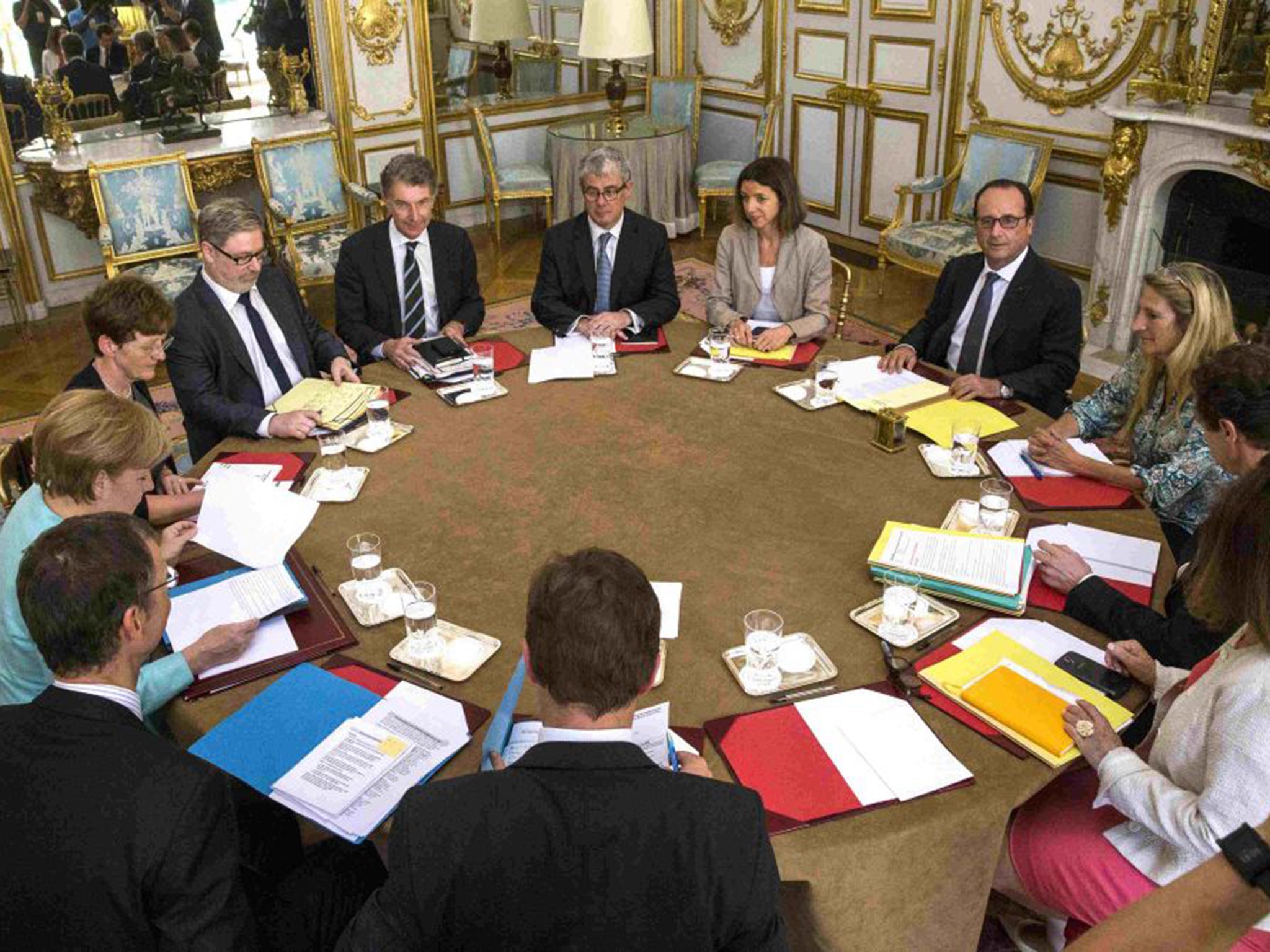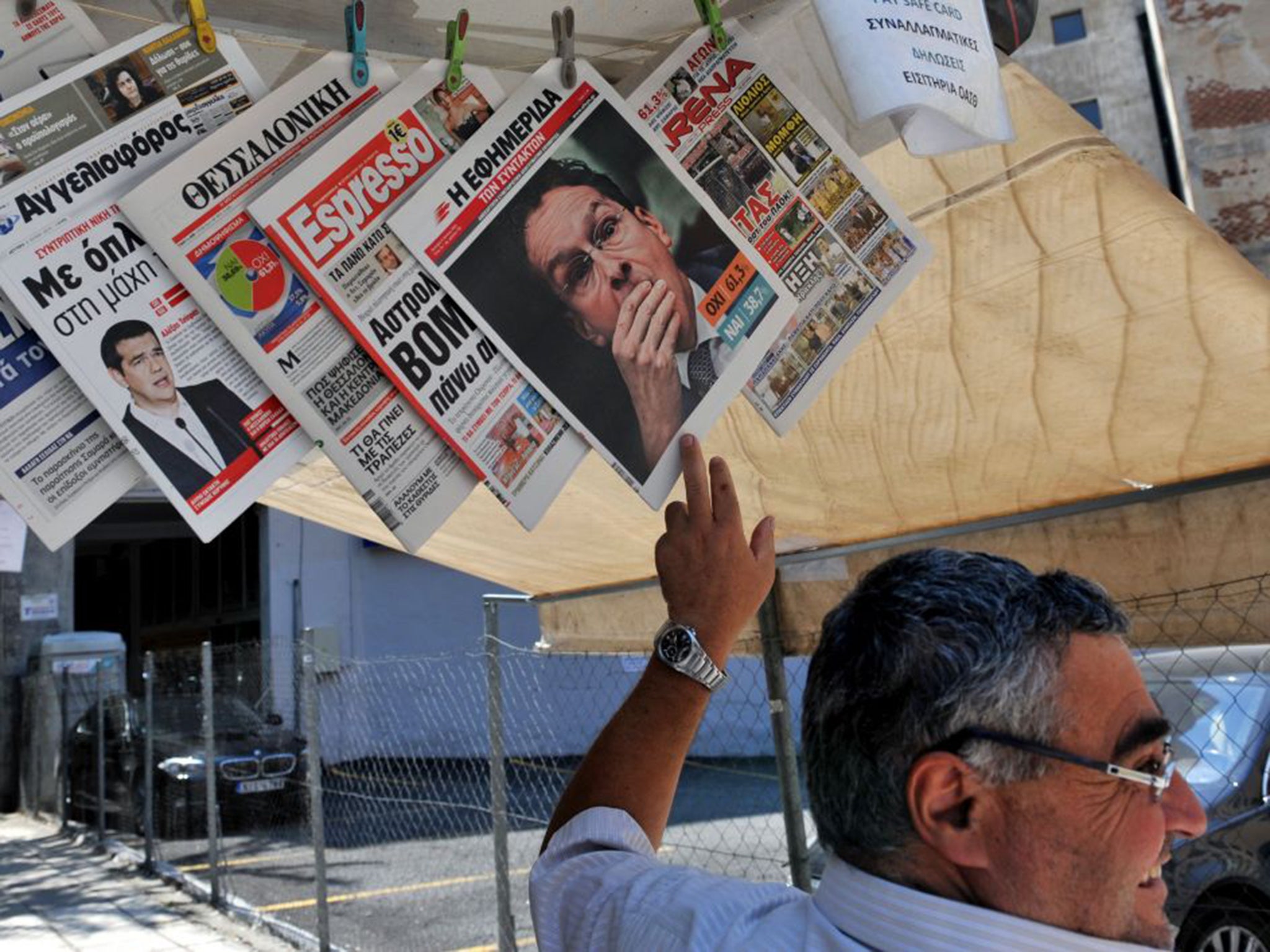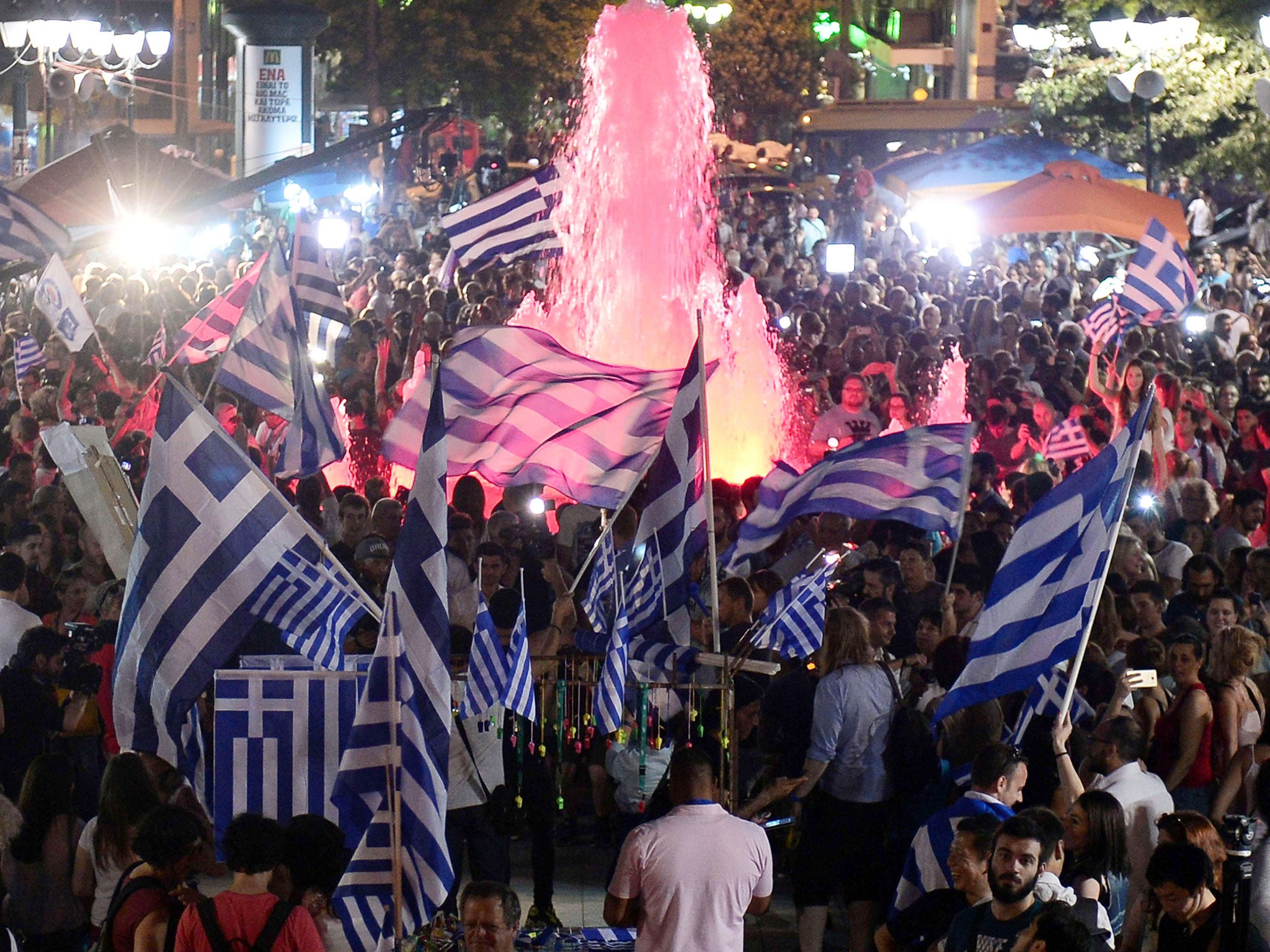Greece debt crisis: EU 'family' needs to forgive rather than punish an impoverished state
An outbreak of malaria in Greece four years ago helps us understand the crisis

Your support helps us to tell the story
From reproductive rights to climate change to Big Tech, The Independent is on the ground when the story is developing. Whether it's investigating the financials of Elon Musk's pro-Trump PAC or producing our latest documentary, 'The A Word', which shines a light on the American women fighting for reproductive rights, we know how important it is to parse out the facts from the messaging.
At such a critical moment in US history, we need reporters on the ground. Your donation allows us to keep sending journalists to speak to both sides of the story.
The Independent is trusted by Americans across the entire political spectrum. And unlike many other quality news outlets, we choose not to lock Americans out of our reporting and analysis with paywalls. We believe quality journalism should be available to everyone, paid for by those who can afford it.
Your support makes all the difference.To understand the future, you must examine the past. In the case of Greece, four years ago will do – when malaria broke out in the Peloponnese. No one had seen a malaria outbreak for 40 years. Every doctor thought it was a common virus. But then it was discovered that – due to economic pressures – the Greek authorities had not sprayed the mosquito fields as early as they usually did. The story, alas, gets worse.
Some years earlier, Afghan and Pakistani refugees had arrived in that most beautiful part of Greece. Being refugees, they were “undocumented migrants” and as such had no medical care. They picked oranges and they carried the malaria parasite which was passed on to those among whom they worked.
Thus Greeks fell sick from malaria. This is what happens when your country experiences an economic crisis.
Take another example. Médecins Sans Frontières is known for its humanitarian work among war wounded, torture victims and refugees. In the awful words of humanitarian-speak, they must “prioritise” those they help.

So what to do in Athens, when their office was confronted not just with the poor and the refugees from Middle Eastern wars, but also homeless men and women, Greek drug users and pensioners who had no money? There was an increase in HIV – 1,500 per cent in Athens – and so MSF had to take account of healthcare and social welfare cuts.
An organisation we all regard as a refugee agency started propping up an EU country because of its economic collapse. Put simply, MSF started to care for Greeks because the EU did not care enough about them.
The young Greek government, which thinks it has just won a brave referendum to free itself from the bondage of bankers, did change the rhetoric of the EU. It became more humane. It changed the laws on migrants. The uninsured could enter hospital free. They could have access to healthcare. And with 25 per cent of Greeks unemployed, 65 per cent of them young, you can begin to understand why more than 61 per cent of the voting population of the country chose to vote No.
The crisis has had a huge impact on the health of the nation – suicide rates have increased by 40 per cent – and so I went to see a Greek doctor to ask him what should be done about Greece. “Of course,” he said, “there was a lot of clientelism here. There was a steady growth of jobs in the public sector. But now this country is at zero. What are we supposed to do? We are part of the European family. If my son goes off the path, what I am I supposed to do? I have to talk with him.
“We joined the European Union – we became part of a family. When a member of your family makes a mistake, what do you do? You have to work with him. We need your solidarity.”
And of course, I answered that if his son had accrued massive debts, he, my doctor friend, had to take responsibility for his son. What if he spent too much of his family’s money? And if he owed me money, was I not entitled to come to the father and ask for my money back? Was he really taking responsibility for his son? Or was I being vengeful in asking him to repay? There was more talk about the family as an institution. His implication was that the EU was a family, not a collection of banks; and that the family cares for all its children equally, and that erring children could not be reformed by punishment.
Which, let us speak frankly, is what the EU is trying to do now. Indeed, when I as a journalist ask Greeks why they don’t repay the money they have borrowed I am, in a sense, seeking to take revenge. I have noticed, driving on the country’s highways, how often EU road signs tell me that a motorway extension has been constructed with millions of euros, yet the people in the car with me do not seem to have benefited from all these euros, except for a few miles taken off their travel schedule.

I met a poor man selling newspapers who had travelled 400 miles on Sunday to his wife’s village in order to vote No. That was what his vote was worth to him. And what the EU was worth.
What we should watch, of course, is how Greece lives in the coming months. If it needs humanitarian aid from those who help refugees, for example, what does it tell us about Greece? Or about the EU? Or about us?
It is a cliché to say this, but clichés sometimes have to suffice. If Greece becomes a beggar state, we can tell ourselves that it deserves it. An example for the Podemos party in Spain. Don’t step out of line. Endure “austerity”, our polite word for poverty. But is that why the EU was created? As a bankers’ union to enrich the wealthy and impoverish the poor? It was supposed to ensure that there will never again be war in Europe?
So what are we going to inflict upon the Greeks?
Join our commenting forum
Join thought-provoking conversations, follow other Independent readers and see their replies
Comments